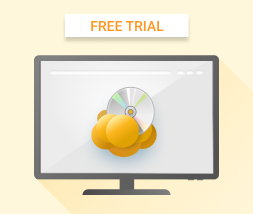Vendor lock-in is a thing of the past. It’s all too easy for MSPs today to discover alternative solutions when they’re determined to cut costs, find better support or track down superior products in the market. MSPs should apply the same line of thought to building backup and disaster recovery (BDR) strategies for their customers.
Even though it may seem like there’s an endless number of BDR vendors in the market, there isn't. And even if you believe the market to be oversaturated, a premise I’d have to vehemently disagree with, BDR solutions aren’t created equal. While vendors in the space are offering similar products, there are differences.
And those distinctions matter. The challenge for MSPs is finding a backup solution that offers the right features at the right price. For instance, are you locked in by a contract? Does the vendor you’re evaluating offer 24/7 support? What about data recovery? Can you restore entire systems in addition to individual files and folders from image backups? And, finally, can you pick and choose the public cloud storage provider you’d like to back up your data to?
Advantages of Public Cloud Storage for Your Backups
I’d like to touch upon my last point since it's one of the many reasons why I believe MSP360’s Managed Backup Service (MBS) is the best-managed backup software in the market today for MSPs.
Simply put, MSP360 utilizes a bring-your-own-storage (BYOS) principle, which means MSPs can pick and choose from a wide variety of third-party cloud storage resources, including AWS Amazon S3, Microsoft Azure Blob Storage, Backblaze B2, and Wasabi, instead of being tied to their own storage solution. By decoupling cloud storage from the backup software, MSP360 puts MSPs in control of where their backups reside. This gives them freedom of choice in terms of cloud backup storage options.
The flexibility that BYOS offers MSPs to make better decisions for their customers in the long run. If one cloud storage provider provides better pricing or a superior feature set over one of its competitors, an MSP can easily make the switch. Its customers aren't held hostage to a particular provider just because the backup software is coupled with cloud storage; however, cloud-based storage isn’t enough in most cases.
Local Backup Still Matters
Of course, speed and security are some of the main advantages of storing data locally. With MSP360 Managed Backup, MSPs can back up customer data to local storage options, including network-attached storage (NAS) devices or network shares, to name a few examples. This provides them with even more freedom. Again, MSPs can pick and choose where to store customer data locally, instead of being forced to pick one location over another.
But MSPs don't have to pick between cloud or local storage. MSPs can also choose a hybrid approach when backing up customer data with MSP360 Managed Backup, which, of course, comes in handy if you follow the 3-2-1 backup rule, which most MSPs do. Customization also ensures that customers are happy, which, in turn, increases revenue on your end. Without a doubt, customizing BDR strategies for your customers is key to protecting them in an ever-evolving IT threat landscape.
There are plenty of BDR solutions to choose from, so why settle for one that doesn’t provide you with the freedom you need to make better decisions for your customers?

About the author
Alexander is the head of marketing department at MSP360. He is an expert in IT marketing and has extensive knowledge of cloud storage services. Alexander cooperates with cloud vendors, MSPs, VARs and communicates the market needs and trends to our team.
More articles by Alexander




